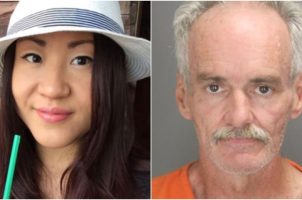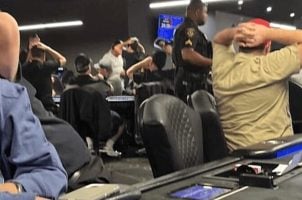Dallas Poker Room Ordered to Close as City Attorney Suddenly Changes Law
Posted on: January 25, 2022, 09:48h.
Last updated on: January 25, 2022, 01:17h.
A Dallas cardroom has received notice that its permit to operate in the city has been revoked, just months after obtaining approval from city officials.

Ryan Crow, CEO of the Texas Card House, told local CBS affiliate KTVT he had received a letter informing him he was “keeping a gambling place,” and would have to close.
City Councilman Omar Narvaez, who represents the neighborhood and supports the card room, said Dallas City Attorney Chris Caso had “unfortunately … decided to change the idea of what he believes constitutes card rules according to the law.”
Two other poker rooms operate in Dallas, although it’s currently unclear whether they have received similar notices.
Hold’em? Not in Texas
Texas may have lent its name to poker’s most popular variant, Texas Hold’em, which was pioneered by old Texas road gamblers like Doyle Brunson, “Amarillo Slim” Preston, and Johnny Moss. But historically, it’s been difficult to get a game in the Lone Star State.
Incidentally, it’s also difficult to get a game of Omaha in Omaha, Nebraska, although they’re working on it. Fortunately, Council Bluffs, Iowa, has several casinos and is pretty much the same city.
Until recently in Texas, the only venue where you could play legally was the Kickapoo Lucky Eagle Casino, way down by the Rio Grande border with Mexico. The casino, based on the Kickapoo reservation, is the only legal casino in the whole state, although two other tribes are working on it.
But over the past few years, several dozen poker rooms have sprung up across Texas — in Austin, Dallas, Houston, San Antonio, Lubbock, and elsewhere. Sometimes these operate in a gray area of the law. But the Texas Card House thought it had squared its operations with the city.
Crow told CBS he had attended many long meetings with city officials in 2020 before it ultimately approved his business.
“We spent about two-and-a-half years trying to find a location that we could open that the city approved of,” Crow said.
Legal Loophole
Texas card rooms operate via a “loophole” in Chapter 47 of the Texas Penal Code.
The statute states that “it is a defense to prosecution” if “the actor engaged in gambling in a private place [which includes a club]; no person received any economic benefit other than personal winnings; [and] except for the advantage of skill or luck, the risks of losing and the chances of winning were the same for all.”
Thus, the card clubs argue that by refraining from acting as “the house,” i.e., raking the pot, they are not infringing the law. Instead, they charge players by the hour to be present at the venue.
‘Someone’s Making Money’
But not everyone is buying it. Dallas City Councilmember Cara Mendelsohn told Spectrum News in July that she was pushing for the City Attorney’s Office to take another look at the clubs’ legal status in Dallas.
And so literally the part that makes this illegal, from what I read, I’m not an attorney — is that somebody is making money in these establishments,” she said. “Whether that’s food sales, alcohol sales, renting a chair, a fee to walk in the door, somebody is making money off of poker.
“When we talk about a game in somebody’s home — which I have no problem with — nobody’s making money other than the players themselves, which is legal in Texas,” she continued.
Crow says Texans will always play poker, and he wants to provide them with a safe environment. He plans to appeal.
Related News Articles
Poker Player Susie Zhao Murderer Handed Life Sentence in Michigan
DA Drops Charges Stemming from Raid on Texas’ Largest Poker Club
Most Popular
LOST VEGAS: ‘Tony The Ant’ Spilotro’s Circus Circus Gift Shop
Las Vegas Overstated F1 Race’s Vegas Impact — Report
Mega Millions Reportedly Mulling Substantial Ticket Price Increase
Las Vegas Strip Stabbing Near The Strat Leaves One Man Dead
Most Commented
-
End of the Line for Las Vegas Monorail
— April 5, 2024 — 90 Comments -
Mega Millions Reportedly Mulling Substantial Ticket Price Increase
— April 16, 2024 — 8 Comments -
Long Island Casino Opponents Love New York Licensing Delays
— March 27, 2024 — 5 Comments -
Sinclair Broadcast Group Selling 7.91 Million Bally’s Shares
— April 12, 2024 — 4 Comments
















Last Comment ( 1 )
Living In Texas as a sixth generation Texan in San Antonio in the early 1970s I could not get a cocktail “by the drink” in a liquor serving place unless I joined their Private Club, which was the Saloon, for $1 per person at the front door to enter the establishment. After that transaction, as Private Club Members we were legal to consume “liquor by the drink”. Same was true with the Navy club Downtown which had a late hours license and open until the early hours.